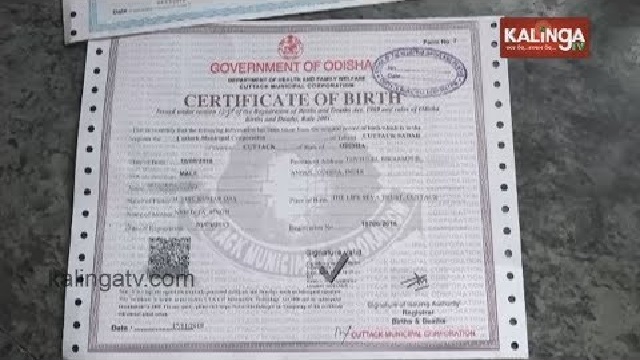Birth certificates likely to be mandatory for admission, voting rights, govt jobs and passport
According to the amendment proposed, hospitals and medical institutions should provide a copy of all death certificates, cause of death, to the local registrar apart from the relative of the deceased.
In the winter session of the Parliament a bill likely to be tabled following the Union Home Ministry’s proposal for amendment of Registration of Birth and Death (RBD) Act, 1969.
The Central government of India put forward to make birth certificates a compulsory document for almost every area of life – admission in educational institutions, incorporation in the voter list, issue of driving licence and passport, assignation in the central and state government jobs- according to a draft bill to amend the registration of Birth and Death (RBD)
The centrally stored data will automatically be updated in actual time when an individual turns 18 and after death in the electoral roll.
According to the amendment proposed, hospitals and medical institutions should provide a copy of all death certificates, cause of death, to the local registrar apart from the relative of the deceased.
To improve the compliance, the government made the registration compulsory to avail basic services such as registration for marriages and admission in schools. In violation of this act, the government will take punishable action.
The Ministry of Home Affairs proposed the bill to amend the RBD Act, 1969, which states that birth certificates issued by the local registrar will be used to confirm the date and place of the person born on or after the date of Amendment for, enrolling into the schools, issuing driving licence, registration for marriage, preparation of voters list, assignation in central government, state government, municipality, and public sector undertakings, autonomous bodies, statutory bodies under central and state government, issuance of passport and for other official works as prescribed by rules and regulation.
The draft bill was placed in the public domain for recommendation last year, but the bill is likely to be tabled in the parliament in the winter session that commences on December 7. The state governments gave comments and required changes were incorporated into the amendment. The department of legislative will scrutinize the bill and it will be presented for union cabinet’s approval. In the winter session the bill will introduce in the parliament,” a source told The Hindu. Since the winter session has only 17 sittings, the discussion about the bill could be taken up in the next session,’’ the source added.
The provisions exist for registration of birth and death certificates but after the law is amended, it will be compulsory to produce certificates for many purposes. The entire process of adding a person’s name when he turns 18 and deletion of the name from the voters’ list when he dies will be online,’’ the source said.
The draft amendment was first reported by The Hindu on October 2021 which enable the registrar general of India (RGI) under the MHA to “control the database of the registered birth and deaths at the national level,” such data’s were also maintained by the state governments or municipal bodies. The birth and death database at the national level will also be used to update the population register, the electoral register and the Aadhar card, ration card, passport and driving licence databases.
The source added saying we will intend to make the institutions such as hospitals and nursing homes to provide accurate reports of birth and deaths.
The proposed amendment says that the deaths occur in any medical institution, it shall be compulsory for those institutions to provide certificate that states the reason of death to the registrar and a copy to the nearest relative in such form as may be prescribed.
If the bill is passed in Parliament, the centre will use the data to update the National Population Register (NPR). The NPR database already have a data of 119 residents and under the citizenship rules, 2003, it is the first step towards the creation of the National Register of Citizens (NCR).




 Kalinga AI
Kalinga AI